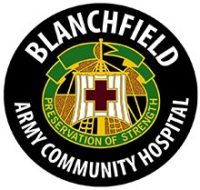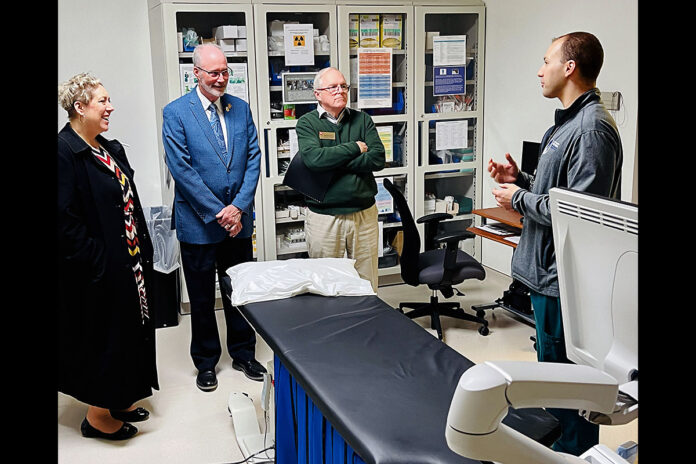 Fort Campbell, KY – The director of the Civilian Aides to the Secretary of the Army program, Angela Ritz, recently learned about how the Fort Campbell Intrepid Spirit Center’s Acute Concussion Clinic and Traumatic Brain Injury Intensive Outpatient Rehabilitation serves Soldiers, and toured its Interdisciplinary Pain Management Clinic and Sleep Medicine Lab.
Fort Campbell, KY – The director of the Civilian Aides to the Secretary of the Army program, Angela Ritz, recently learned about how the Fort Campbell Intrepid Spirit Center’s Acute Concussion Clinic and Traumatic Brain Injury Intensive Outpatient Rehabilitation serves Soldiers, and toured its Interdisciplinary Pain Management Clinic and Sleep Medicine Lab.
“People can have head injuries without injuring their brain, which is common. A concussion is when a head injury occurs that also disrupts normal brain function. Concussions are also called traumatic brain injuries, or TBIs. Battlefield related injuries, such as blast or explosion exposure, shrapnel, fights, and gunshot wounds, are not the only way to obtain a concussion. In fact, falls and motor vehicle accidents are the most common ways to suffer a traumatic brain injury,” said Maj. (Dr.) Nicholas Spinuzza, a physical medicine and rehabilitation physician, and Fort Campbell Intrepid Spirit Center medical director.
Ritz was accompanied on the January 9th visit by Phil Harpel and Ralph Schulz, both serving as Tennessee CASAs. CASAs are business and community leaders appointed by the Secretary of the Army to advise and support Army leaders across the country. Spinuzza guided the trio on a tour of the state-of-the-art center while discussing how the Intrepid Spirit Center executes its mission of treating service members with TBIs, Post Traumatic Stress Disorder, pain, and sleep dysfunction.
“Most people will recover within a few days to weeks, but data suggests earlier intervention may improve down time” explained Spinuzza. A statistic backed by the Defense Health Agency’s Traumatic Brain Injury Center of Excellence reports that service members typically return to full duty within 2-4 weeks.
Spinuzza explained that the Defense Health Agency put forward a directive to advance screening and early intervention, requiring each Military Health System region to come up with plans to execute the task. Spinuzza and his then partner, Maj. (Dr.) Blaise Pascale, led from the front, bolstering existing hospital infrastructure and creating the first Acute Concussion Clinic for the MHS.
“Our mission is to help our Soldiers return, as close as possible, to the level of health and quality of life they had prior to injury. By educating our colleagues throughout the installation on evaluation and treatment of concussions via the Military Acute Concussion Evaluation and the Progressive Return to Activity program, we have also helped improve the care delivered to retirees and dependent beneficiaries,” said Spinuzza.
Soldiers who have suffered a head injury and experience physical, cognitive, or emotional symptoms should seek medical evaluation, through primary or emergency care.
“In persistent cases, our intensive outpatient rehabilitation center is designed to further the diagnostic evaluation and provide targeted, individualized treatment through an interdisciplinary model. Utilizing traditional medical therapies, neuro modulation, behavioral health support, and complementary and alternative medicine techniques, we aim to accomplish that goal,” Spinuzza explained.
The Intrepid Spirit Center’s intensive outpatient rehabilitation for TBI is designed to maintain a Soldier’s integration with their unit throughout the 12-week program. This unique approach enables real-time feedback, encouraging family and work engagement in the healing process.
After the stop at Intrepid, Ritz and her group continued their visit to Fort Campbell.



